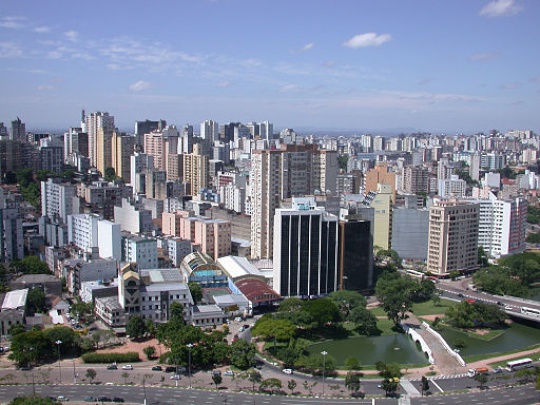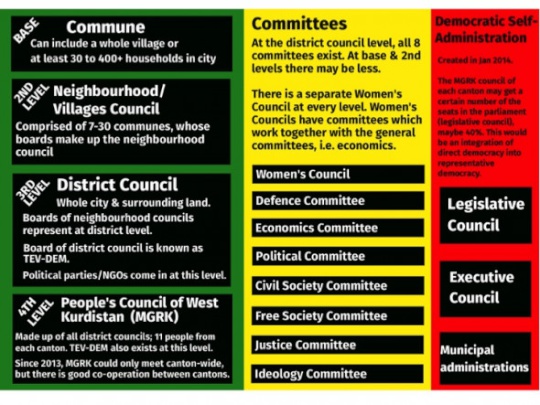
The ultimate aim of any
human society should be to ensure the prosperity, freedom
and fulfilment for all of its members. Our shared natural,
economic and social resources are part of a common
inheritance or ‘commonwealth’, therefore we as citizens must be involved in tangible ways in decisions affecting them. However, it
is becoming more and more apparent that representative
democracies around the world, including New Zealand’s, are
not capable of fulfilling this objective. Our political
systems are broken and are leading to gross wealth
inequality, disenfranchisement and a failure to meet the
basic needs of huge segments of society.
A distinct lack of open, inclusive and transparent political and economic systems is emerging as a key factor in this growing crisis of modern, liberal democracies. Meanwhile the anger and despair created by this situation is ironically being exploited by those who would lead us towards authoritarianism and further away from the more inclusive institutions we need. In this context the growing global movement for open government; or more inclusive, accountable and transparent politics becomes highly important as a concept to inoculate us from the spreading virus of fascism.
A Crisis of Exclusion
Most modern representative political systems and institutions increasingly exclude ordinary citizens from the democratic process. Many accuse these same systems, however, of providing VIP access to global finance (capital) and corporations (private sector) to information and ability to influence decisions. This imbalance results in a capital-biased system that makes it difficult for ordinary citizens to participate meaningfully in democracy or the economy as anything but exploitable resources. This exclusion of huge segments of society (particularly the young and the poor) from participating in economic or political life, limits potential for real human prosperity and development.
Former UK Diplomat turned Anarchist and direct democracy advocate, Carne Ross, argues in his movie Accidental Anarchist that our system of representative democracy is broken. Ross draws from his firsthand experience including advising the Blair Government around the Iraq war to highlight the failures of representative democracies worldwide. Ross also points out that there is a wealth of proven real world examples of the success of more open and participatory democratic practices to draw from in designing better systems.
Why it Matters to New Zealand
New Zealand is certainly no exception to this trend of exclusion with voter engagement and political participation at an all time low. New Zealand has historically performed well in transparency, however we certainly do not have a perfect democracy. A 2016 study commissioned by Victoria University’s Institute for Governance and Policy Studies (IGPS) found only 8 per cent of respondents had "complete or lots of trust" in MPs. Only 10 per cent trusted ministers and 12 per cent trusted local government.
Max Rashbrooke, also of the IGPS, recently published an excellent report on open government in this country. Bridges Both Ways: Transforming the Openness of New Zealand Government identifies a series of major problems in New Zealand around transparency and accountability of government. The report highlights a lack of opportunity in our system for public participation or genuine two-way dialogue between the public and decision-makers. Rashbrooke states: “But the country cannot be blind to serious – and growing – failings. There is evidence that it is not properly fostering a political culture where citizens can access the information they need and public participation is encouraged.”
In
addition Sir Geoffrey Palmer wrote in a blog post
recently:
“Throughout the western world,
democracy is facing challenging times. People are trusting
politicians and political processes less than they used to.
Brexit and Donald Trump are symptoms. New Zealand is not
immune to these trends. We may be relatively free of
corruption, but our democracy is not as robust as it could
be.”
Inoculating Against Fascism
The Trumpocalypse, Brexit and other global stirrings of fascism show that many people feel dissatisfied with and disenfranchised by their lack of agency in the current political system and are crying out for an alternative. The alternative we are at risk of sliding into, however, is ironically a neo-fascist, authoritarian state predicated on inequality, low citizen awareness and engagement, increased surveillance and corporate control.
Open government on the other hand potentially offers an alternative organising system that could increase equality, participation and the ability of the public to control their own destiny. This alternative is more radically open and democratic than current systems and will give citizens back a degree of the agency they seek in an our seemingly out of control world. It may also help restore trust in the ability of elected officials to represent our interests, which is understandably low. Adopting more open governance practices and institutions will thus make our society less susceptible to authoritarian populists and con artists with false promises and hidden agendas.
Open government is democratising and emancipatory as it enhances real opportunities for citizens and civil society organisations to solve problems for how we organise our society on a local scale. It allows us to be informed and involved in democracy and decision making on a more meaningful basis than simply voting once every 3 years. The idea is that if people are more engaged and informed, then they will be more vested in and put more energy into enhancing society positively through participation and innovation.
So, What Actually Is Open Government?
Open government is essentially the extent to which citizens can see what is being done with public money and resources, what decisions are being made on our behalf and the ability to take part in shaping those decisions. An open government has traditionally been understood as one with high levels of transparency and mechanisms for public scrutiny and oversight in place, with an emphasis on government accountability. However, these days this definition also includes the extent to which there are opportunities for public participation in the process.
To quote Max Rashbrooke, “Making government ‘open’ is about ensuring that, where practical and appropriate, the core decisions of politics are made in full view of the public. That means key information is available, political decisions are free from corruption, the public can hold its leaders accountable, and ordinary people are directly involved in making decisions as often as possible. Ultimately this makes government more honest, more effective and more democratic.”
Open government is not a new concept – with roots back to Aristotle, Socrates and the earliest flourishing of western democratic principles as well to Chinese antiquity. However, the modern concept emerged in enlightenment Europe with Sweden enacting the first Freedom of the Press legislation in 1766. Enlightenment thinking influenced the French and US revolutions in which the people wrested some power from absolutist monarchs. A degree of budgetary transparency and press freedom were achieved in these movements. However, it was not until the 1950s and 60s civil rights movements that further rights such as Freedom of Information laws, national regulatory systems, and accountable public processes were gained. These democratic rights underpinning our representative democracies are now largely taken for granted, however, they have invariably been the result of hard fought concessions to citizen-led movements demanding more transparency and openness.
Very few governments in history have voluntarily opened up. As the Snowden revelations demonstrated, there is an inherent tendency of governments (even supposedly progressive ones such as the Obama administration) to lapse, whenever possible, into secrecy and authoritarianism. Most of these victories came about only after intense periods of struggle, revolution, scandal, elections, and civil society organising.
We appear to be in another period of such revolutionary change to our governance structures presently. On the one hand a crisis of surveillance, exclusion, disenfranchisement and authoritarianism is threatening these hard fought freedoms. However, simultaneously a new and more open way of government is struggling to be born and could provide a wholesale restructure of the global political and economic fabric. It is up to us to decide which one of these future societies we want to live in.
Gov 2.0 - A New System is Possible
The open government concept is constantly evolving with political consciousness and technological movements and developments. New developments in the E-Government space have opened up further possibilities for innovations to provide meaningful opportunities for citizens to participate on a mass scale in decisions affecting society.
New concepts such as open data, open innovation, collaborative democracy and collaborative budgeting are some of the approaches that can be harnessed by governments seeking more collaborative strategies for working with the public. This new approach to government looks toward a future of radical openness where citizens are directly engaged in democratic decisions and in shaping their communities in tangible ways.
Actually - It’s Already Here!
Switzerland has been experimenting with direct democracy in the national political system for a number of years. Despite notable issues with populism and xenophobia, this referenda based approach to democracy has resulted in strong political and democratic engagement by the community. The checks and balances on power imposed by this system are widely thought to have led to a higher quality of representative governance than in most other Western nations.
Political parties proposing overhaul of democratic processes have attracted increasing amounts of disillusioned voters recently. Both Podemos in Spain and Iceland’s Pirate Party ran on platforms of direct democracy and divesting decision making to the people. On the party’s website, Pirate Party leader Jónsdóttir said “We do not define ourselves as left or right but rather as a party that focuses on the systems. In other words, we consider ourselves hackers — so to speak — of our current outdated systems of government.” Both parties attracted huge support and were only narrowly prevented from forming governments by the refusal of establishment politicians on either the left or right to collaborate due to fear of the radical change they represented.
Other notable examples include the even more radically decentralised local Spanish direct democracy movements Ahora Madrid and Barcelona en Comu. Even the Sanders and Corbyn movements to a lesser extent have achieved huge followings by attempting to divest more power to the grass roots within a traditional party structure. Both have come up against strong resistance from the power structures of their own parties for this very reason.
Open Data and Open Government in Taiwan
Taiwan is a shining example of what can be achieved in a short time by opening up government processes to citizens through a combination of open government principles and high tech innovation. Since Taiwan’s 2014 occupy style uprising – ‘the sunflower movement’ - a number of former occupiers have gone on to hold political office and a wave of direct democracy and collaborative budgeting initiatives has infected government systems. In this same period, Taiwan has also surged from 36th place to first place globally on British advocacy group Open Knowledge International’s “open data” index.
One of
Taiwan’s most recent officials Audrey Tang holds the newly created
position of ‘Digital Minister’. Tang is a
transgender, former child prodigy computer programmer and
community organiser and was instrumental in the ‘g0v’
and VTaiwan
movements, which created a highly successful ‘shadow
government’ to listen to and engage citizens in
decision-making. G0v “pushes information transparency,
focusing on developing information platforms and tools for
the citizens to participate in society.” Audrey Tang
delivered this excellent talk on Taiwan’s open
government revolution at the Open Source Open Society
conference in Wellington in 2016.

Participatory
Budgeting
Many progressive cities around the world such as Porto Alegre, Brazil have already had great success with participatory budgeting and have inspired other cities in Brazil and elsewhere to adopt the approach. This innovation directly incorporates citizens into public meetings where they decide how to allocate public funds. Neighbourhoods get together each week to analyse the previous annual budget and discuss the future one. They delegate representatives to present the proposal to the city assembly, which in turn determines which programmes will be funded.
A new study of participatory institutions in Brazil over a decade has found that cities like Porto Alegre with participatory budgeting programmes improve the lives of their citizens and decrease inequality. Cities that adopted the approach over the past decade have invariably allocated more funds to education and sanitation, decreased infant mortality, improved Municipal facilities and water and sewer connections. The focus of the extra spending have been largely in areas with lower income and fewer public services, usually neglected by traditional city budgets. The study also outlines that participatory budgeting’s influence strengthens over time, which indicates that it is allowing governments, citizens, and civil society organisations to build new institutions that produce better forms of governance.
In 2016, Portugal took participatory budgeting further by announcing the world’s first nationwide participatory budgeting (PB) process even including ATM-based voting to increase voter turnout. This innovation will give government decision makers a better idea of what rural and urban people respectively want and need in their lives and communities. This is an important step as it unleashes the potential of breaking down the damaging divide between urban and rural communities so common in today’s democracies. This approach could conceivably avoid the situation witnessed in the USA where many rural communities rightly felt unheard and reacted by backing Trump.
Democratic Confederalism in the Middle East
Perhaps this century’s most radical and most promising innovation in democratic and governance reform comes from an area mostly written off as a basket case, the Middle East. Rojava is a non-nation state aligned self-governing territory comprising the three Kurdish-majority cantons of Northern Syria. Rather than the nation state or ethnic grouping, the people in Rojava are identifying as citizens in a collectively defined form of direct democracy called democratic confederalism. This new and yet timeless system of government was inspired by the writings of New York Anarchist scholar Murray Bookchin as well as traditional tribal practices common to many indigenous societies.
Power in Rojava is as decentralised as possible, spanning from village assemblies and communes to legislative councils and commissions running the economy, defence, and justice ministries. At all levels in this secular system, ethnic, religious and gender balance is maintained. Rojava is perhaps best known for its People’s Protection Units comprised of both male and female fighters who have been instrumental in the ground battle against ISIS in the region. Could this seed of a new progressive democratic experiment spread across the region (and beyond) neutralising religious, cultural and nation-state related tensions? That will depend on the support this experiment receives from the various global power players.

How Openness Leads to Resilience and Growth
Societies with transparent economic and political systems have been shown to have higher levels of prosperity than those with closed and extractive systems. In Why Nations Fail: The Origins of Power, Prosperity, and Poverty, Daron Acemoglu and James A. Robinson propose that inclusive economic and political institutions (such as those in modern Scandinavian democracies) lead to prosperity. In other words, they state that prosperous nations have “political institutions that distribute power broadly in society and subject it to constraints” and economic institutions “that allow and encourage participation by the great mass of people in economic activities that make best use of their talents and skills and that enable individuals to make the choices they wish.”
In contrast, they state that prosperity and stability is adversely hindered by extractive and exclusive economic institutions and policies - ie those “designed to extract incomes and wealth from one subset of society [the masses] to benefit a different subset [the governing elite].” The conclusion reached is that attempting to engineer prosperity without confronting the root causes - extractive institutions and the politics that keeps them in place—is unlikely to bear fruit.
It is increasingly accepted that New Zealand’s major political parties are still firmly in the grip of neoliberal political ideology. This flawed ideology has failed to deliver prosperity but has successfully extracted wealth from the masses to a small elite. If we believe the above, then the way to reach true prosperity is to abandon this neoliberal ideology underpinning our current approach to organising the economy. This would require adopting a much more open and inclusive political system that would provide the confidence and stability necessary to encourage citizens and investors to generate prosperity.
How Open Government Could Benefit NZ
Open government enables political and economic participation and fosters citizen engagement, innovation and economic development. If a government is open, it gives citizens access to participate in improving the way it works, and access to the information it creates and collects. Broadening such access makes a government more accountable, efficient, and trusted, and even helps to improve the economy.
If we want citizens (especially younger ones) to engage in politics we need to seriously think about ways to open up our government processes in ways relevant to them. In the Bridges Both Ways report, Max Rashbrooke proposes five ‘key ideas’ aimed at increasing the openness and participatory nature of government in New Zealand. These practical and achievable solutions are: crowdsourced bills, participatory budgeting, a ‘Public Opinion’ Budget, a ‘Kōrero Politics’ Day and democratising party funding. Such innovations could indeed help to get more Kiwis interested and involved again so that democratic participation becomes about more than voting once every few years.
Open, transparent government is inextricably linked to voter turnout according to Massey University local government specialist Associate Professor Christine Cheyne. Dr Cheyne says key elements of open government include the quality of public engagement, the quality of education on 'civics' (especially in relation to local democracy) in schools; access to data from public funded sources and research; and ensuring that there is a genuine basis for participation by civil society organisations and citizens in government processes.
The opening up of data and government software and intellectual property would provide opportunities for local companies to build services that improve the lives of citizens and make interacting with decision makers easier. We should be supporting local companies innovating in the open government and open source technology space to work closely with government to this end. This would lead to the creation of a ‘data commons’ which could help government, communities and businesses to work collaboratively and thrive. I covered the value of an open source approach to government in this article on the Government’s new open data principles.
Reverting to a more open approach to democracy and economy is essential to re-localisation. It will reenergise and distribute innovation across both urban and rural areas and give more space for diverse approaches to living to develop. An open government approach also has a lot in common with the more participatory and inclusive decision making processes of Māori and Pasifika culture. Adopting this practice would enhance the democratic rights of Māori and many other marginalised groups and would be a positive step towards creating a more fair and equal society.
What is Holding Open Government Back?
Unfortunately, New Zealand has shown little interest over the past decade in keeping up with the latest developments. As a result we are failing to adapt to the necessities, let alone the exciting opportunities presented by open government in a modern digital society. Meanwhile other countries are making great progress in this area and we are no longer playing the leadership role expected of us as early pioneers in open government. The mainstream political and media power bloc in New Zealand, however, has been highly resistant to any changes in the direction of greater citizen participation in politics. This would explain why there has been so little debate in political or media circles on the issue and why many Kiwis are not even aware of the exciting potential of open government.
The benefits and implementation of a more open and distributed government system are not really in question; all that is lacking is the political will from those with power to make changes. In this video Carne Ross summarises the reason politicians are so resistant to adopting more open government; “Politicians won’t make this happen, Turkeys don’t vote for Christmas.”
Getting To Open?
There are many benefits to this necessary transition to open government, not least of which is the fact that the alternative of an increasingly authoritarian society is highly unappealing. With the combined potential of new technology and increased public appetite for a more open and participatory system we could be on the verge of a great leap forward in the way we organise our society. We now have enough know how, technology and resources to make participation in governance a seamless and effortless daily reality for all members of the planet.
However, it is up to us as citizens to claim this right from the political establishment and create a more level playing field where all citizens can participate in politics and the economy. We must make it clear in no uncertain terms that the wishes of the people are to be more involved and engaged in political decision making at every level as agents rather than as exploitable units. To do this we need to ensure sensible and accurate public discussion of open government issues occurs in both the political and media realms. As Rashbrooke concludes in the Bridges Both ways report, with the general election around the corner, now is the perfect time for a wider discussion on this topic. Whatever the makeup of the next Government, we need to ensure that our representatives understand the importance of the need for a radical rethink of the system so that citizens are placed at the centre of political decision-making in New Zealand.
This article was completed with the help of crowdfunding raised at the Open Source Open Society Conference in 2016. It is also part of Scoop’s campaign to increase transparency, accountability and participation in 2017 General election coverage. Learn more about what we are doing by visiting the “Opening The Election” page on Scoop.



 Richard S. Ehrlich: Deadly Border Feud Between Thailand & Cambodia
Richard S. Ehrlich: Deadly Border Feud Between Thailand & Cambodia Gordon Campbell: On Free Speech And Anti-Semitism
Gordon Campbell: On Free Speech And Anti-Semitism Ian Powell: The Disgrace Of The Hospice Care Funding Scandal
Ian Powell: The Disgrace Of The Hospice Care Funding Scandal Binoy Kampmark: Catching Israel Out - Gaza And The Madleen “Selfie” Protest
Binoy Kampmark: Catching Israel Out - Gaza And The Madleen “Selfie” Protest Ramzy Baroud: Gaza's 'Humanitarian' Façade - A Deceptive Ploy Unravels
Ramzy Baroud: Gaza's 'Humanitarian' Façade - A Deceptive Ploy Unravels Keith Rankin: Remembering New Zealand's Missing Tragedy
Keith Rankin: Remembering New Zealand's Missing Tragedy